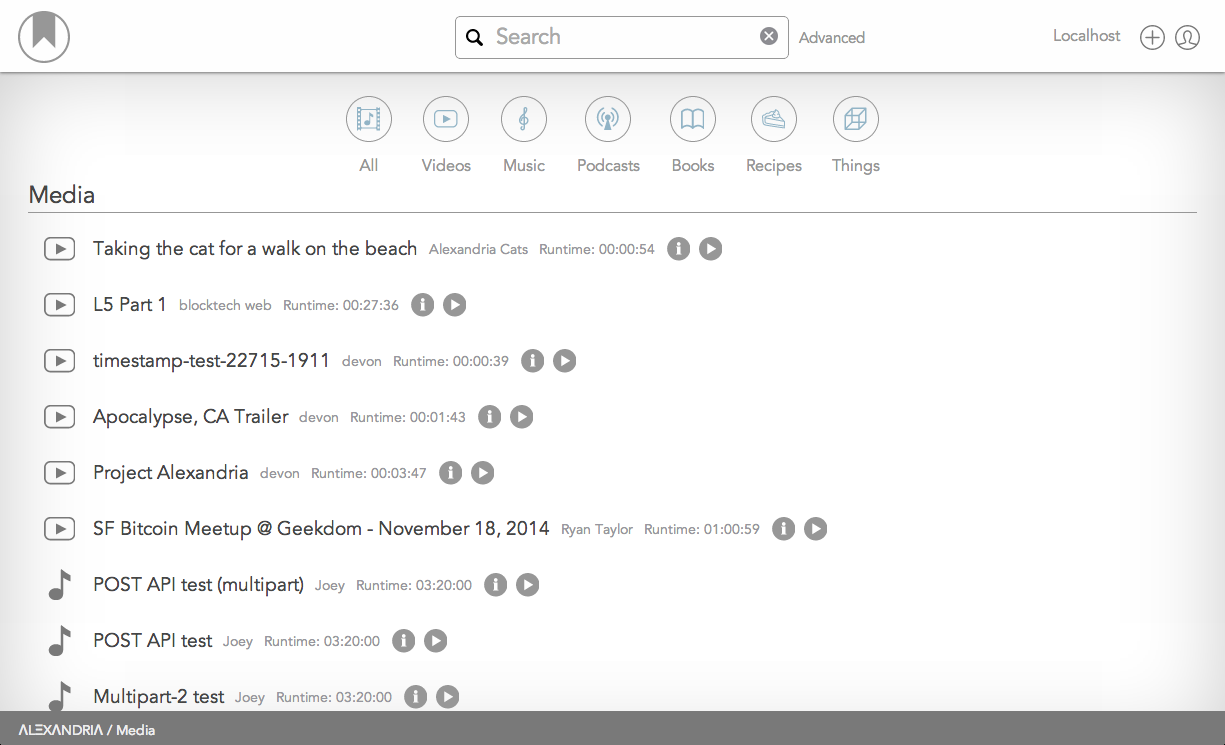In what could perhaps be the next step in the fight for freedom of information on the Internet, San Diego-based blockchain startup Blocktech launched a crowdfunding campaign to fund Alexandria, a decentralized, open-source, peer-to-peer “library” for all sorts of media.
Using blockchain technology, Alexandria allows users to distribute practically any sort of media, — including videos, music, podcasts, books and 3D-printable objects — over a global and uncensorable network of computers.

Speaking to Cointelegraph, Blocktech CEO Devon Read explained:
“You can compare Alexandria to YouTube or Soundcloud, but by making use of various peer-to-peer networking technologies, the platform relies on no servers. Users can self-publish anything they'd like, and they — only they — have complete control of how their works are published.”
Although Alexandria is promoted as a library, it should be noted that the Alexandria software does not technically store any media itself. Instead, it uses blockchain technology to store and distribute magnet links, which in turn link to the popular peer-to-peer file-sharing protocol BitTorrent. As such, Alexandria is perhaps better understood as a decentralized version of torrent sites like The Piratebay, but with several additional features, such as streaming functionality and built-in payment options.
The main advantage of Alexandria over regular torrent sites, of course, is the absence of central servers, which means that the service cannot be shut down or blocked — as has happened with various torrent sites over and over again. As long as someone is mining Florincoin, Alexandria will continue to exist.
Read said:
“The goal here was basically to give everyone on the planet the right to free speech. Not by passing laws which can be repealed, watered down or just ignored, but by baking it into the Internet itself. With Alexandria, a citizen can share cell-phone video of police brutality, a whistle-blower can release evidence of corruption, a wiz kid can share her innovative idea for a solution to global warming, a war widow in Syria can share her independent documentary about life in a warzone and use its proceeds to help rebuild her village, and Cody Wilson can share his 3D printable fire arms, and no one can censor them.”
Additionally, Alexandria attempts to replace the dominant ad model many content creators on the Internet have come to rely on, with various forms of direct payments from the audience. Currently Alexandria offers optional tips and a “pay-what-you-want wall” as the two options, but the team plans to implement several other choices in the future, such as micro subscriptions and an innovative peer-to-peer digital rights mechanism for purchases.
Read explained:
“I personally hate web advertisements, and they really aren’t very effective. Artists make US$1 or less from every 1000 streams of their content these days. We think that direct micro tipping and other cryptocurrency-based payment options can provide a lot more value to artists, and a better experience to audiences.”
While most types of payments in Alexandria can be done with bitcoin, the actual software is built on top of Florincoin, an altcoin that was launched in 2013. Florincoin resembles Bitcoin, and especially Litecoin, in many ways, but this alternative cryptocurrency distinguishes itself through the ability to attach 528 bytes of information to each transaction. Alexandria uses this option to store magnet links, as well as additional data on the Florincoin blockchain. This means that content uploaders need to own some florincoin in order to pay for the mining fees, which can be bought with bitcoin inside of the Alexandria app itself.
Read does leave the option to move Alexandria to another blockchain open, however:
“At this moment in time, it makes the most sense for us to use Florincoin as our database layer, and I do expect that this will continue to be the best solution for Alexandria for the long run. But if it becomes obvious that side chains or Ethereum or something else proposes a better solution, we are open to changing our plan.”
The development of Alexandria is currently in its alpha stage. The Blocktech team hopes to be able to raise US$36,000 with a crowdfunding effort in order to complete a private beta in six weeks time, and wants to raise an additional US$42,000 to release an open-source public beta six weeks later. Additionally, the team released a development plan to lay out the features that additional funds would go toward.
Donation addresses can be found on Blocktech's website.
Did you enjoy this article? You may also be interested in reading these ones:
